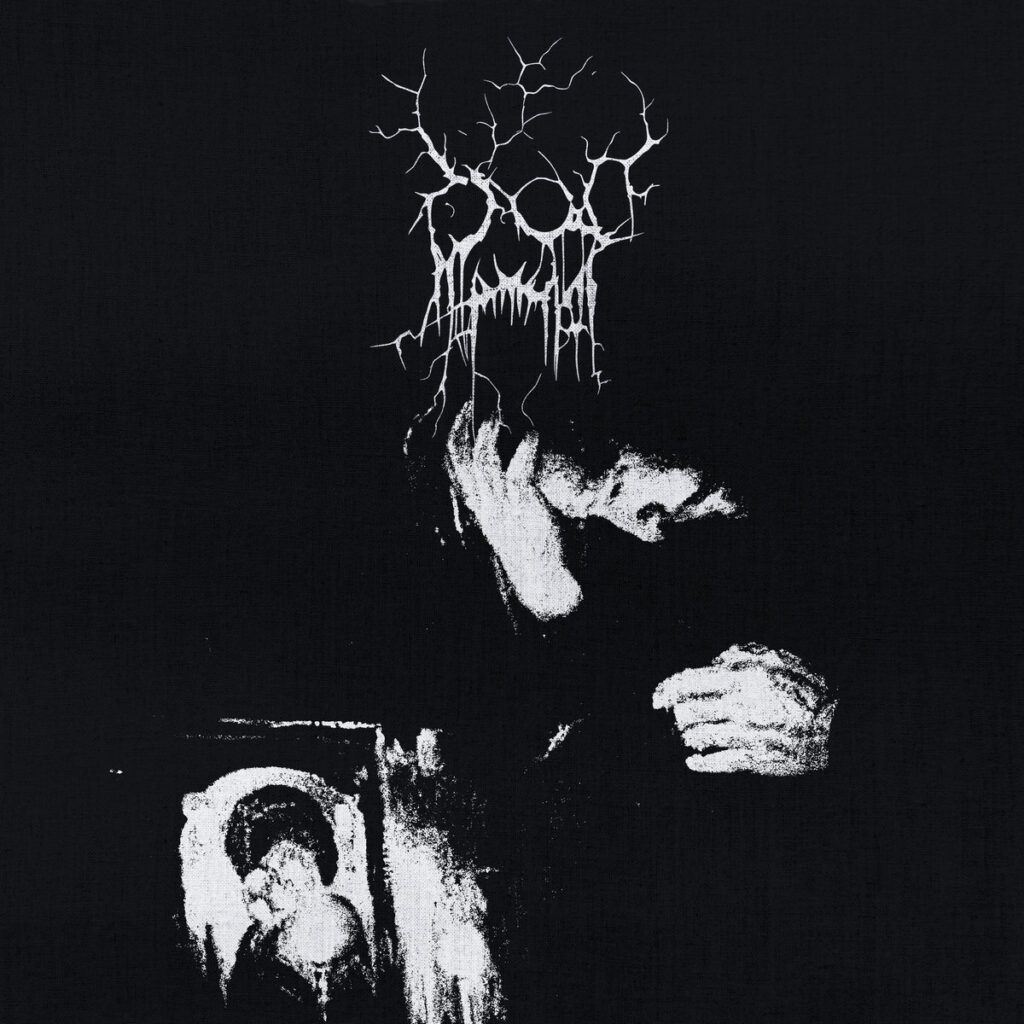Review: Morkerod – Severity

Morkerod
Severity
(Sneeuwstorm Produkties)
Morkerod is rather mysterious one-man black metal project from Russia, playing in the cold and depressive style of the subgenre. The band was founded in 2024, and Severity is the band’s first release (although they’ve released two more since then). The release contains 5 songs and clocks in at just under 30 minutes, so this is either a really long EP or a mini-album, depending on your perspective.
The music on Severity is incredibly unsettling. It has a quality about it that even the most diehard fans of black metal may find difficult. From fast-paced blastbeats to atmospheric, haunting bells and keys, to the high-pitched shriek-styled vocals, this is a very unusual release. If you are not one to embrace dissonance in music, you probably won’t enjoy this, as there are often several different things happening at once, making for an interesting yet unsettling listening experience.
Deamon, the sole member, has an intense background. Having dabbled in satanism, suffered under abuse from an alcoholic father, and been hospitalized twice with somatic symptom disorder, he eventually found (or reclaimed) his Orthodox Christian faith, put to death his secular DSBM band The Distant Void to give birth to Morkerod, an outlet for expressing his thoughts regarding his relationship to God.
I can already hear the protests from some of our readers. Why create music this disturbing, this unsettling, this ‘depressive’? And while I am sympathetic to the question, I see the beauty of Deamon creating ways to express his agonies, trials, and tribulations and how he relates to our true Father having come through so many hardships. This is much more in the spirit of the Psalms than much of what passes for ‘faith’ these days. My hope is that listeners who have suffered the same types of trauma that Deamon has undergone would also find the same hope in Christ that he found.
Let’s get back to the music, shall we? I have to be honest. Upon my first listen, I wasn’t entirely sure what to do with this music. I’ve been a fan of extreme metal of various kinds since I first fell in love with Human Sacrifice in the late 80s. But nothing could quite prepare for the screams of anguish heard here, juxtaposed by not only lightning speed blastbeats, but also accompanied by the atmospheric keys. On my first listen through the album, I couldn’t quite connect with the music. It was . . . too much.
But isn’t that what extreme metal, in all its forms, should be about? If it doesn’t challenge the listener (as well as the creator), then what’s the point? If we wanted comfortable music, we should ditch metal altogether and listen to pop or praise and worship.
“Peccatum” begins with fast-paced noise that is offset by some type of xylophone or other percussive bells. A minute into the track, things slow down with some ambience, but the mood is broken by tormented screams that sound as if they’re coming from deep within a cave. The pace doesn’t pick back up for another two full minutes, and we’re back into blastbeats briefly before the pace changes again. Perhaps the song won’t make sense unless we understand that the Latin titled “peccatum” refers to the theological concept of humanity’s inherent sinfulness and our need for redemption. The mood created by the song speaks to our depravity with incredible effectiveness.
Carrying on the theme of Latin song titles, “Ira Dei” is next in the queue, focusing more on blastbeats and less on slower, ambient passages than its predecessor. The subject is the wrath of God, and here we have once again the cacophonous juxtaposition of grating guitar sounds, shrieked vocals and melodic-percussive keys. There is a slower melodic section here, but it’s much shorter than in “Peccatum.”
We start to see a sort of concept emerging thematically (even without full lyrics): track 3 is “Poenitentia” or in English, repent. This track is the most dissonant so far and serves as an aural description of the anguish one endures when emerging from the darkness of sin and turning towards the light. Liberating, yes, but no less painful. I’d go so far as to describe this song as downright terrifying.
It’s as if Deamon knew we would need a slight break as we get to track 4, so “Flesh and Blood Will Turn to Dust” opens with keys, percussion and acoustic guitar, though it won’t allow us to stay there. The respite is temporary. No blastbeats this time, but nonetheless enter some cold, bleak–if melodic–guitar tones in the mid-paced track. The screams are just as potent, just a little slower than what we’ve heard so far. Final track “Limbo” closes the release out, and it’s a slow-paced, meditative track. And since we know we’re not dealing with that dance where you try to pass under an increasingly lower bar, it’s worth noting the Latin meaning of “limbo” as a waiting period between time and space. I get the feeling the Deamon wants us to linger in this space (incidentally a 7-minute track) to reflect on life, death, sin, and judgment, not so much as a purgatory, but a limbo in which we can examine ourselves and what we will do with what we have seen and heard.
Severity is by far one of the most challenging albums I’ve ever listened to. Proceed with caution.
Rating: 4 out of 5
Severity | Morkerod | SneeuwStorm Produkties






